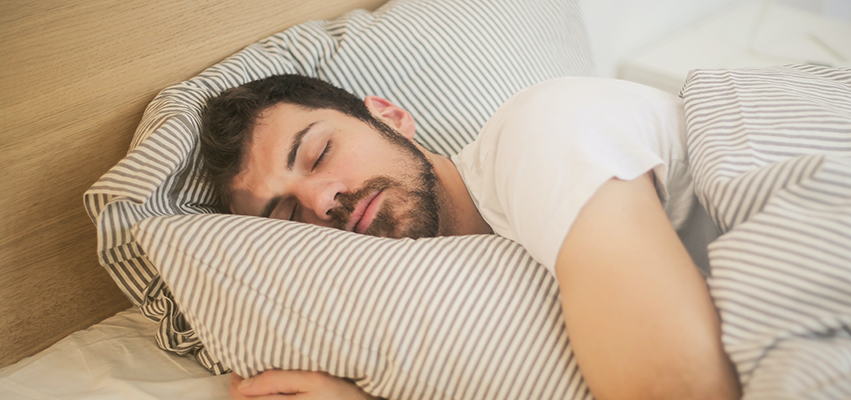Sleep Issues You Should Not Ignore

Fighting cancer is not easy. It can be scary and stressful, and cancer can impact nearly every aspect of your life—including your sleep health. Issues related to cancer and cancer treatment can make it difficult to fall asleep or stay asleep. They can degrade the quality of your sleep. And without proper sleep, your body and mind have a harder time doing just about everything, including fighting off a dangerous disease.
“Sleep is an essential part of everybody’s health,” notes Kaninika Verma, MD, a sleep medicine specialist with OSF HealthCare. “Quantity and quality are both important when it comes to sleep. It aids in the healing process. Good sleep is essential for our overall well-being and health.”
If you aren’t getting proper rest, you should not shrug it off and ignore the problem, especially if you are being treated for cancer.
A Common Problem
“We see a lot of people with cancer having sleep issues that need to be dealt with,” Dr. Verma says. People who have been diagnosed with cancer can face a lot of stress, which can lead to depression and anxiety. According to Dr. Verma, difficulty either falling asleep or staying asleep can be the result.
Some people also suffer sleeping issues due to their cancer medication. They have trouble falling asleep, staying asleep or getting restful sleep. And some people sleep too much due to their medication. Sleep disorders can have so many different possible causes, and sleep can impact every other aspect of a person’s health. That’s why Dr. Verma treats sleep disorders using a multidisciplinary approach that relies on the expertise of other specialists.
Every case is unique, which calls for a personalized plan for every patient. It starts with a sleep evaluation. Then you may work with a psychologist to develop healthy sleeping techniques, or you may need some sort of medical treatment.
“It’s about how much you are sleeping and the quality of the sleep,” Dr. Verma explains. “Some medications can cause issues with the quality of sleep. And if you have sleep breathing troubles like sleep apnea, it can make all this even worse.”
Try This At Home
Whether you have cancer or not, here are some good sleep behaviors you can adopt in your daily life to help you fall asleep—and stay asleep, courtesy of Dr. Verma:
- Get seven to eight hours of sleep per day. The adult body needs that much sleep to do its daily maintenance and recharge.
- Eliminate screens an hour before bed. The blue light from electronic screens makes it more difficult to shut your mind down.
- Maintain a routine sleep schedule. Condition your brain to sleep at the same time every day.
- Practice mindfulness. There are a lot of online apps to help with mind relaxation techniques.
If you are not getting good sleep, you should speak to your primary care provider about a possible referral to a sleep specialist. PM
- Log in to post comments

